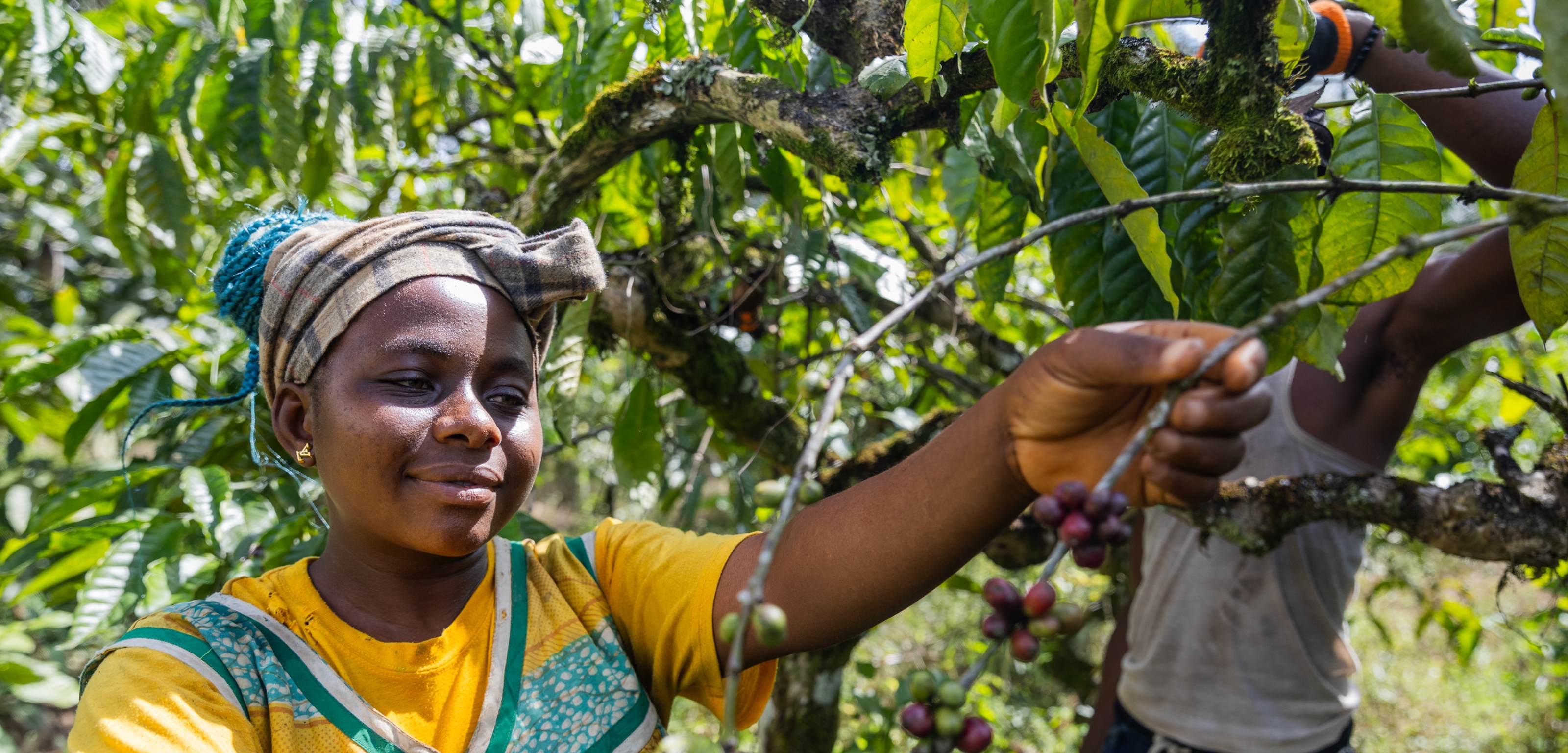Reviving high quality coffee to stimulate climate adaptation in smallholder farming communities
Description
This project leverages Nespresso’s supply chains to implement localized climate adaptation and resilience interventions in smallholder coffee landscapes in the DRC and Uganda, with a particular emphasis on women’s empowerment. The goal of the project is to enable smallholder coffee farming households in Masaka (Uganda) and Minova (South Kivu, DRC) to adapt to a changing environment, and to support long-term resilience among these communities, with an additional focus on improving household nutrition in the DRC and supporting energy efficient cookstoves in Uganda.
Democratic Republic of the Congo, Uganda
The project addresses adaptation needs in the DRC by promoting the uptake of agroforestry practices, linking this to increased and more stable revenue sources, through the promotion of food security as well as rural economic development initiatives. Specifically, this project supports reforestation and agroforestry through the distribution of seedlings (including indigenous species to help meet household needs for wood fuel) and through farmer training (including on agroforestry). The project also has a component on nutrition, whereby households are trained on appropriate local coping practices, including kitchen gardens, which further promotes diverse on-farm production systems.
The project is also innovative in that it leverages Nespresso and KCL’s local presence to upskill local communities through participatory trainings, andtrainings and creates a stable revenue source for farmers and rural communities linked to a premium coffee value chain, thus creating short and long-term benefits from coffee and livelihood diversification initiatives (e.g., on wood fuel, VSLAs, local production of improved cook stoves and seedlings).
In Uganda, the project aims to reduce poverty and improve resilience to climate change for 2,200 smallholder farming households, while improving regeneration of ecosystems and protection of biodiversity. The project involves households in joint coffee farm visioning under the gender program, as well as equitable support for resilient agricultural livelihoods through Nespresso’s responsible sourcing and knowledge sharing approach.
30 business model farms have been established to provide free trainings on regenerative agriculture, using games and other tools to inform farmers of the severe impacts of climate change. Farming households are clustered into Village Savings and Loans Associations (VSLAs), where they save and lend money to KCL farmers. These loans are used for buying inputs, such as drought-resistant seedling varieties at subsidized rates, which have led to improved yields, improved incomes, and farmers’ ability to demonstrate the agronomy lessons in their own farms.
Farmers have also accessed 1,700 energy-saving stoves, which have reduced the rate at which trees are cut down for fuel, thus encouraging the recycling of nutrients needed by coffee trees on the farms.
Through several trainings on regenerative agriculture, I was offered practical and cost-effective practices for sustainable coffee production that have completely turned my story. I adopted mulching, and soil and water conservation trenches alongside other good agronomic practices. Through these practices, I have emerged one of the most resilient farmers in the district with continuous production throughout the year. I can produce about 10 tons of green coffee a year and that has generated income for me to expand my farm by 3 more acres. Currently, I am a model farmer and change agent, whereby farmers consistently gather on my coffee field to learn and adopt regenerative practices for continued production during harsh climatic conditions. I have a sustainable source of income to provide for the needs of my household and pay for school for all my children. I thank Kyagalanyi Coffee Ltd with its partners for changing my life.
Geert Jan Heusinkveld
Kyagalanyi Coffee Limited Sustainability Manager (EA)


